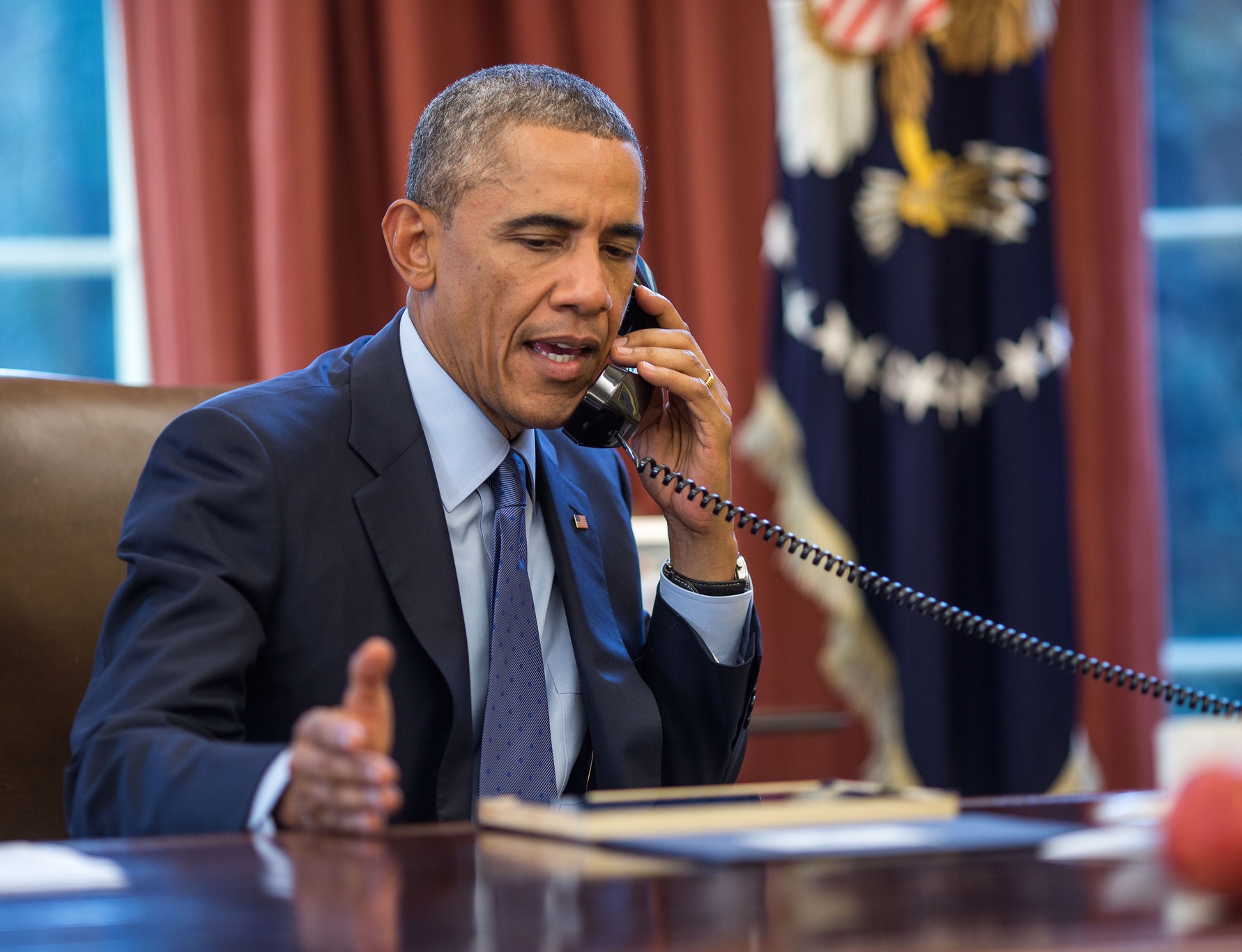White House Contemplating Proportional Response to Sony Hack

The smarter way to stay on top of broadcasting and cable industry. Sign up below
You are now subscribed
Your newsletter sign-up was successful
White House Press Secretary Josh Earnest says the White House has held several daily meetings on the Sony hack, including with the President's Homeland Security advisor and cyber coordinator as the administration contemplates a "proportional response" to what he says appeared to have been "destructive activity with malicious intent that was initiated by a sophisticated actor" and the President considers a serious national security matter. The President is closely monitoring the situation, he said.
Earnest said that while the decision to pull the movie was Sony's to make, artistic expression should not be subject to intimidation by those who disagree with the views it expresses.
Earnest would not rule out the White House screening The Interview sometime in the future, but said probably not anytime soon since the President was preparing to leave for his annual Hawaii holiday.
The President is likely to address the Sony situation at his end-of-the-year press conference on Friday (Dec. 19). He will almost certainly be asked.
The White House has yet to identify North Korea as that malicious actor, but says it is considering a "range of options" in response to whoever perpetrated the hack, mindful of the fact that the hackers may have wanted to provoke a response and would consider that to their advantage. Asked how that would be to their advantage, he said: "[I]t’s not hard to imagine that there may be some organizations or individuals who would perceive a specific response from the United States as something that might enhance their standing, either among their cohorts or colleagues, or even on the international stage.
The White house daily press briefing on Dec. 18 was dominated by questions about the hack and Sony's decision to pull The Interview, which featured the assassination of a sitting head of state, North Korea's Kim Jong-Un
Asked whether the President had expressed an opinion about that depiction, Earnest said he had not talked to the President about it, but that, in general, "the President and the administration stands squarely on the side of the artists and other private citizens who seek to freely express their views."
The smarter way to stay on top of broadcasting and cable industry. Sign up below
Asked if Sony had effectively given in to blackmail, Earnest said that Sony was a private company and the decision was for it to make, "not one that the federal government should be making." But, he added, "We believe that that kind of artistic expression is worthy of protection and is not something that should be subjected to intimidation just because you happen to disagree with the views."
Earnest suggested Sony had a tough call. "I’m sympathetic to the very difficult decision that they had to make, and there are a lot of equities that they had to balance, both in terms of the way to release this movie, the way that it could be shown. I know that there was a reluctance from some of the movie theaters to commit to showing the film, and that certainly weighed on the decision that Sony had to make. So I’m sympathetic to that. But ultimately this is a decision that they had to make based on their own best interests and based on the freedom that they have to express themselves as artists.
Earnest refused to declare the movie's pulling a victory for the hackers
Earnest would not say whether buy proportional response that meant the U.S. would launch a cyber attack on North Korea, though he did not rule it out when asked to clarify. He also said he could not promise to be entirely transparent about what the response was when that decision was made.
Earnest also pointed out that the President has pushed Congress to pass cybersecurity legislation and in the meantime had tried to push the issue on his own initiative.
"We have taken steps to better protect our infrastructure both here in the federal government and working with the private sector to help them protect their infrastructure from attacks," he said. "[W]e’ve worked hard to tighten up and secure federal computer networks. We’ve sought to improve our capability as it relates to both investigating these intrusions and responding to them. We have sought to build a stronger cooperative relationship in working with countries around the world to confront this threat. And we have also been working at a variety of agencies to develop more sophisticated technology, again, that would better defend our networks and allow us to more effectively respond when intrusions occur."
Contributing editor John Eggerton has been an editor and/or writer on media regulation, legislation and policy for over four decades, including covering the FCC, FTC, Congress, the major media trade associations, and the federal courts. In addition to Multichannel News and Broadcasting + Cable, his work has appeared in Radio World, TV Technology, TV Fax, This Week in Consumer Electronics, Variety and the Encyclopedia Britannica.

